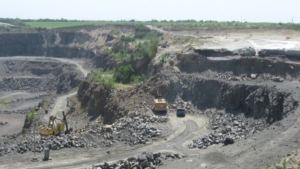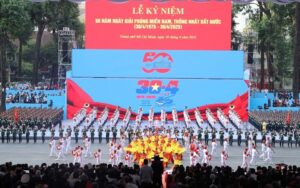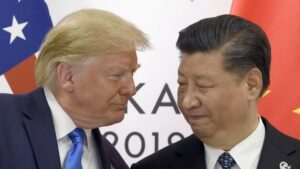
During its spring offensive, Russian forces took control of one of Ukraine’s most promising lithium deposits — the Shevchenkivske site in Donetsk region. Previously under development by an American critical minerals company, the site was seen as a key asset in the growing economic partnership between Kyiv and Washington in the field of strategic resources. Its capture now poses serious risks to future joint projects and has already raised concerns among Western investors.
The Shevchenkivske deposit contains significant reserves of spodumene — a mineral from which lithium is extracted. Lithium is essential for manufacturing batteries used in electric vehicles and energy storage systems. Ukraine had earlier signed a framework agreement with the United States on cooperation in the field of critical raw materials, including the development of domestic lithium, titanium, and rare earth element extraction — crucial for the West’s green energy transition. The agreement envisioned attracting investment into Ukrainian subsoil resources. However, with Shevchenkivske now under Russian control, the feasibility of that cooperation is under threat.
Myroslav Zhernov, the director of the company holding the license for the site, confirmed the loss in a comment to The New York Times. According to him, the battle for the deposit lasted several weeks: “It was very hot. They were bombing with everything they had. And now they’re there.” Zhernov warned that this may not be the end: “If the Russians advance farther, they will control more and more deposits.”
The New York Times reports that signs of activity have already been observed on the occupied territory: an assessment of reserves is underway, and preparations for future extraction may be in progress. In this way, control over lithium could give the Kremlin not only military but also geoeconomic advantages. The article notes that Russia is already leveraging its influence in global raw materials supply chains, particularly in uranium markets.
Although Ukraine still possesses two other major lithium deposits in its western regions, Shevchenkivske was considered the most promising due to its high spodumene concentration — up to 90%. In peacetime, the development of this site could have become not only a source of revenue, but a strategic lever for integrating Ukraine into Western critical materials markets.
Former head of the State Service of Geology and Mineral Resources, Roman Opimakh, explained that such investments are subject to enormous risks during wartime: “Security and control over a deposit is the main prerequisite. The military threat scares away investors, and the loss of such a site effectively nullifies any near-term development plans.”
Observers note that the war is increasingly taking on characteristics of economic conflict. Russia is not only destroying infrastructure but is actively targeting resources that could be useful to itself or potentially strengthen Ukraine. Gaining control over lithium assets allows for pressure on Western corporations and contributes to reshaping global dependencies.
Despite the loss, Zhernov said his company is not giving up on investing in Ukraine and is exploring other options. However, he admitted the situation has fundamentally changed risk assessments: “Before, we saw this project as a driver of economic growth. Now — it’s just another front in the war.”
Earlier, the Experts Club information and analysis center produced a detailed video analysis of the prospects for rare earth element mining in Ukraine.

Israel’s strikes on Iran’s gas infrastructure will push up gas prices in Europe, which means they may also rise in Ukraine, according to Andriy Kobolev, former head of the board of Naftogaz Ukraine.
“Israel has begun to destroy Iran’s gas infrastructure with drones… For those wondering what to do about gas purchases for this winter: this will have a significant impact on the balance (and therefore the price) of natural gas in Europe,” he wrote on Facebook on Sunday.
Kobolev explained that Iran had been supplying gas to Turkey, which resold it to the EU, but now, due to Israeli strikes, Iranian gas is at risk of being cut off, and the Turks will not be able to replace it with Russian gas because both gas pipelines are almost fully loaded.
“Therefore, Turkey will be forced to either reduce gas supplies to the EU or increase the share of more expensive LNG. In any case, this will push prices up in the EU. And if Israel continues to attack the Iranian gas sector, part of Russian gas may be redirected to Iran,” the former head of Naftogaz concluded, advising to prepare for such an impact on prices.
As reported, Ukraine was forced to return to significant gas imports from Europe due to Russian strikes on gas infrastructure.
According to the Ukrainian Gas Transmission System Operator (OGTSU), 501 million cubic meters were imported in May (54% via Hungary, 33% via Poland, and 12% via Slovakia), or 16.1 million cubic meters per day. At the same time, former OGTSU board chairman Serhiy Makogon believes that Ukraine needs to import approximately 870 million cubic meters per month, or 29 million cubic meters per day, to achieve last year’s planned gas storage targets in underground gas storage facilities (UGS).

April 30, 2025, marks the 50th anniversary of the withdrawal of US troops from Vietnam.
50 years ago, not only did the Vietnam War (1955-1975), one of the most exhausting and long-lasting wars of the second half of the twentieth century, end, but also Vietnam’s long struggle for independence from colonial rule and foreign interference.
The Vietnamese people not only gained independence and united the country in defense of their land, but also demonstrated to the world the importance of the spirit of national unity and faith in their principles, which allowed them to fight a just struggle to secure the country’s freedom, independence, and sovereignty.
The protracted military conflict, during which about four million Vietnamese died (civilians suffered the greatest losses) and more than 58,000 U.S. military personnel were killed, was put to an end.
April 30, 1975 was a historic event when North and South Vietnam officially united after many years of war to form the unified Socialist Republic of Vietnam.

Currently, Vietnam consistently adheres to the “Four No’s” policy: not to enter into military alliances; not to side with one country against another; not to allow foreign militaries to establish bases in Vietnam or use Vietnam’s territory as leverage against others; and not to use or threaten the use of force in international relations.
Defensive diplomacy has become the mainstay of Vietnamese diplomacy. To date, Vietnam has been actively involved in the United Nations peacekeeping mission, international cooperation in non-traditional security, humanitarian assistance, search and rescue, and post-war mitigation, thus making a great contribution to maintaining international and regional peace, stability, cooperation, and development.
Vietnam and Ukraine have traditional friendly relations. Tens of thousands of Vietnamese have studied and worked in Ukraine. Thousands of Vietnamese have chosen Ukraine as their second home and stayed here after studying and working. In Ukraine
is home to a large Vietnamese diaspora (before the war, it numbered about 10,000 people).
Trade between Vietnam and Ukraine dropped after the outbreak of the war, but has now begun to grow again, and delegations have been exchanged.
Vietnamese Prime Minister Pham Minh Chinh has met twice with President Zelenskyy at international events.
Minister Dmytro Kuleba also met with the Vietnamese Foreign Minister at an ASEAN meeting.
Andriy Sybiga, Minister of Foreign Affairs, held telephone talks with Deputy Prime Minister and Minister of Foreign Affairs of Vietnam Bui Thanh Son on the potential of bilateral relations and the need to intensify high-level dialogue.
What has happened in the past with Vietnam over the decades provides at least two lessons for the modern world.
First, the independence, sovereignty, and integrity of every nation, large or small, should be respected.
Secondly, the Cold War between the great powers only brings misery to small countries trapped in this competition.
The lessons of history are very relevant and can be useful for establishing peace in Ukraine.

Every fifth child in Ukraine has reported losing a close relative or friend since the start of Russia’s full-scale aggression three years ago, according to a survey published by UNICEF on Friday.
“For all these years, death and destruction have been a daily routine for every child in Ukraine. This level of violence causes enormous suffering for children and deprives them of a true childhood,” said UNICEF Executive Director Katharine Russell.
It is noted that the third year of the full-scale war in Ukraine has become even more deadly for children compared to 2023: the number of child casualties has increased by 50%. In total, more than 2,520 children have been killed or injured since February 2022. It is noted that the true number of victims is likely to be much higher, as these are only figures confirmed by the UN.
It is officially recorded that more than 1,600 educational institutions and almost 790 healthcare facilities have been damaged or destroyed over the past three years, UNICEF added.
“The war has caused irreparable losses to children and adolescents, affecting their development and well-being at key stages of their lives,” the Fund states.
He reminds that the experience of the first three years determines the health and learning of children throughout their lives, and in Ukraine, children born three years ago do not even know what peaceful life is. Parents report feeling physically and emotionally exhausted, which affects the lives of the entire family. The war has also made it harder for young children and their parents to access critical services.
“Adolescence is a particularly difficult period for children in Ukraine. Almost a third of adolescents reported feeling sad and hopeless, which prevent them from doing their usual activities. These feelings are much more prevalent among girls,” the publication says.
UNICEF points out that children’s mental health problems are exacerbated by forced seclusion. Many children spend hours in shelters, losing opportunities for socializing and learning. Almost 40% of children study only online or combine face-to-face and remote classes. The impact of the war on learning is very serious: the average level of educational loss is two years in reading and one year in math, according to the Foundation.
UNICEF reminds that it is working with partners across Ukraine to provide children in frontline areas with vital support, including access to health services, safe water, cash assistance, education and protection. In addition, the Foundation works with the government and partners to lay the foundation for Ukraine’s recovery and long-term development, and to promote social cohesion by strengthening systems that support children and their families. This includes strengthening child social protection, health and education systems so that they can provide children with timely and quality support, care and opportunity services.
It is also noted that there are currently 6.86 million Ukrainian refugees registered in the world, almost 1 million of whom live in Poland. For refugee children, access to schooling remains a challenge, as half of school-age children in refugee-hosting countries are not enrolled in local educational institutions, which affects their ability to learn and communicate with their peers, as well as develop basic skills critical to Ukraine’s recovery.
“All children without exception must be protected from the effects of war in accordance with international humanitarian and human rights law. What children in Ukraine need most of all is sustainable peace and the chance to realize their full potential,” Russell emphasized.

US President Donald Trump said that he has “always liked” Chinese President Xi Jinping and expressed hope for China’s help in a peaceful resolution of Russia’s war against Ukraine.
“I hope China will help us stop the war, particularly with Russia, Ukraine, and they have a lot of power over this situation. And we will work with them. And I mentioned that during our phone call with President Xi, and I hope we can work together and stop it,” he said during an online chat after a special address at the World Economic Forum in Davos on Thursday.
According to Trump, his administration “looks forward to getting along very well with China.”
The US leader also noted that he “really likes President Xi” Jinping. “I’ve always liked him. We’ve always had a very good relationship,” the US president added.

The future US Special Envoy for Ukraine and Russia, Keith Kellogg, said that he aims to find a solution to end Russia’s war against Ukraine within the first 100 days of Donald Trump’s presidency.
“I think the biggest mistake that President Biden made is that he never engaged in conversations with Putin. I mean, he hasn’t talked to him in over two years. He needs to talk to him. That’s one of the great things that the president (Trump) is doing – he’s talking to both adversaries and allies,” Kellogg said on FOX News.
According to the general, Trump “really knows that you have to talk to people to get things done, and that’s what he’s going to do.”
“We will create the conditions for the president, and eventually he will be in a position to talk to President Putin and also to President Zelensky. And I think they will come to an acceptable decision in the short term. And when I say “in the short term,” you know, I would like to set a goal on a personal level, on a professional level. I would say let’s set 100 days,” Kellogg said.